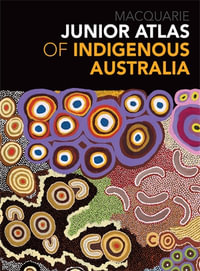A novel interpretation of Aristotle's teachings on the relation between reason and moral virtue. What does it mean to live a good life or a happy life, and what part does reason play in the quest for fulfillment? Proceeding by means of a close and thematically selective commentary on Aristotle's Nicomachean Ethics, Pangle shows how Aristotle's arguments for virtue as the core of happiness and for reason as the guide to virtue emerge in dialectical response to Socrates's paradoxical claim that virtue is knowledge and vice is ignorance and as part of a politically complex project of giving guidance to lawgivers and ordinary citizens while offering spurs to deep theoretical reflection.
Against Socrates, Aristotle insists that both virtue and vice are voluntary and that individuals are responsible for their characters, a stance that lends itself to a vigorous defense of moral responsibility. At the same time, Pangle shows, Aristotle elucidates the importance of unchosen concerns in shaping all that we do and the presence of some form of ignorance or subtle confusion in all moral failings. Thus the gap between his position and that of Socrates comes on close inspection to be much smaller than first appears, and his true teaching on the role of reason in shaping moral existence is far more complex. The book offers fresh interpretations of Aristotle's teaching on the relation of passions to judgments, on what it means to choose virtue for its own sake, on the way reason finds the mean, especially in justice, and on the crucial intellectual virtue of phronesis or active wisdom and its relation to theoretical wisdom. Offering answers to longstanding debates over the status of reason and the meaning of happiness in the Nicomachean Ethics, this book will kindle in readers a new appreciation for Aristotle's lessons on how to make the most out of life, as individuals and in society.
Industry Reviews
"Pangle's book offers a singularly illuminating, meticulous, and learned examination of one of the two central works of classical political philosophy: Aristotle's Nicomachean Ethics. (The other central work is Plato's Republic.) Her argument that Aristotle ultimately offers a subtle, humane, socially responsible critique of the more conventional accounts of moral responsibility is all the more powerful because of her attention to Aristotle's overall discussion and because of her careful exegesis of the text." -- Peter Ahrensdorf, Davidson College
"In Reason and Character, Pangle brings her considerable interpretive skills to bear on foundational questions in the classical tradition. She opens new pathways in the study of Aristotle, adeptly engages the scholarly literature, and offers compelling solutions to long-standing debates regarding the Nicomachean Ethics." -- Susan D. Collins, University of Notre Dame
"Anyone working on the texts described would find them an invaluable aid. Philosophy students who are not reading Greek would also find them helpful gateways into Plato's and Aristotle's thoughts on these moral problems. [Pangle] quotes from other scholars generously, including when she disagrees, and her notes and references are extensive. This enterprise is exactly what she has said it is: the fruit of lengthy pondering on two difficult authors, in a notoriously problematic area of moral philosophy, leading to a new and illuminating synthesis between them." * Classics for All (Praise for Virtue is Knowledge and Reason and Character) *
"Reason and Character is a challenging, searching, and meticulous examination of a classic text. It should be read by everyone who wishes to understand the Nicomachean Ethics." * Claremont Review of Books *
"Examining questions that have perplexed generations of scholars, Pangle offers a fresh approach not simply through careful attention to the inquiry's dialectical nature, but through her own lively dialogue with Aristotle." * Review of Politics *
























